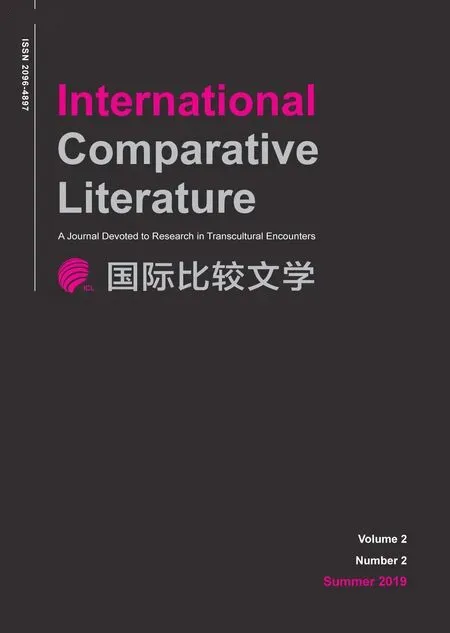John Pomfret.The Beautiful Country and the Middle Kingdom: America and China, 1776 to the Present
Lee Moore
John Pomfret, a former China correspondent who has long been a keen observer of the relationship between China and the United States, has recently published a well-timed book, The Beautiful Country and the Middle Kingdom.Just as the two countries have experienced tension in their relationship, Pomfret's history of the relationship between the two countries reminds us that the China-US bond is deep, with more than two hundred years of history.Pomfret's book is an attempt to track the relationship between these two massive countries from its beginning to the present moment.Pomfret's history is the best in this class of books since the 1983 history of John Fairbanks, The United States and China.His argument is that the relationship has lasted longer than most actors on either side realize.China-US relations did not begin with Henry Kissinger, but rather began at the earliest stage of the existence of the United States as a country.
Pomfret begins by discussing how intertwined the two country's economies have been, even from the beginning of their relationship.Between 1805-1808, trade between the China and the US made up approximately fifteen percent of the US economy, similar to what it makes up today, and trade with China made many in both countries rich.Howqua, one of the Hongs in Guangzhou, also made a fortune on his trade with America.He used American ships to trade tea with London, skirting the monopsonistic power of the colonial East India Company, and he floated loans to American merchants to avoid having to pay cuts of his profits to corrupt local officials.This made both Howqua and his American business partners rich, increased trade between the two countries and allowed America to compete with Britain in world markets.
George Washington, Ben Franklin, Thomas Jefferson, James Madison and Thomas Paine all admired China, seeing in it the nation that they wanted America to become, though each of them admired different aspects of China.Franklin admired the prison system and its census, and wanted to understand the science behind Chinese home heating systems.Madison and Jefferson admired China's ability to seal itself off from the rest of the world, while Paine thought that Confucius might be compared admirably to Jesus.
In the 1840's, members of the Chinese elite returned the Americans' adoration of China.Xu Jiyu徐继畲 (1795—1873), governor of Fujian province, wrote a history of the Western nations that portrayed George Washington as a Confucian ruler and America as a Confucian paradise.Pomfret's point is not that the two countries understood each other; clearly both Washington and Xu misunderstood the other's country.Instead, Pomfret contends that both China and the US were, from the earliest years of the American republic, bound by a special relationship, buttressed by a strong economic relationship and a cultural admiration on both sides of that other pond.
Of course, the relationship has not always been a happy relationship.Pomfret does an excellent job of tracking how the relationship with China degenerated, in part because America was descending into poisonous racial politics.In the early period of American settlement of the West coast, in the 1850's, white America welcomed Chinese laborers.Businessmen praised their work ethic, the mayor of San Francisco honored the Chinese with a special ceremony and California's governor endorsed the proposal to bring in Chinese laborers to drain the swamplands of California.“At a time of severe labor shortages, Chinese toilers saved the West,” Pomfret states.
But just as the South was turning towards the politics of Jim Crow, California and other states in the American West shifted towards racists anti-Chinese politics.In 1871, a mob of White and Hispanic Americans lynched sixteen Chinese-Americans for their race in Los Angeles.In 1879, a racist anti-Chinese party dominated California's constitutional convention, placing anti-Chinese statutes in the state constitution.By 1882, racism spread to national politics with the Chinese Exclusion Act.The act was the first time that the US had ever excluded immigrants based on their race, and it marked the beginning of a long line of racially tinged immigration politics that would not end until the 1960's.A decade later, the Geary Act created America's first internal passport system, which was aimed at restricting the movement of Chinese-Americans.In the 1950's, as some in the country's elites were seeking to dismantle the many systems of racial prejudice, the Supreme Court turned to early cases ruling in favor of Chinese-Americans, like Yick Wo vs.Hopkins.America's turn towards racism against the Chinese mirrored the country's larger turn inwards toward racial politics; Pomfret hints that the relationship between China and the US is, in some ways, a microcosm of American history as a whole.
If this excellent book has a fault, it is in the occasional disjointedness of the narrative.As the book traces the history of the China-US relationship, its narrative follows many strands, some of them connected only loosely.Often these strands will end abruptly, and the narrative will shift to another strand, a fact that makes Pomfret's book sometimes hard to follow.This is more the fault of the material rather than the author.As Pomfret points out, the relationship between the two countries is pockmarked with many stops and starts, and it becomes inevitable that any narrative that tries to tackle this more than two hundred years of history may be jarring.But Pomfret does an admirable job of stitching these disparate narratives together, attempting to connect the multiple strands of the narrative into a single, unified statement.
Pomfret's history argues that the bonds that bind the two countries together are buried deep within their national DNA.To understand the US, one must understand its relationship with China, and visa versa.Pomfret uses Orville Schell's words, calling the relationship a “common entreprise” to sum up how we should think of China-US relations.Pomfret argues that, in a time of tension, it is important to remind ourselves that the roots of China-US relations grow deep and cannot easily be uprooted.

